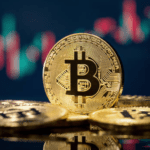In the age of digital connectivity, social media has become an integral part of our daily lives. Platforms like Facebook, Instagram, Twitter, and TikTok promise to keep us connected to friends, family, and even strangers across the globe. Yet, despite the pervasive nature of these platforms, a growing number of studies suggest that social media may be contributing to an increase in loneliness and isolation, rather than fostering true connections. Sherry Turkle, professor of the Social Studies of Science and Technology at MIT and author of Reclaiming Conversation: The Power of Talk in a Digital Age, states:
“We are more connected than ever before, but we are less present with each other.”
A report from the American Psychological Association in 2017 revealed that 40% of Americans reported feeling lonely, with social media use frequently cited as a contributing factor. While platforms like Facebook are designed to help people stay in touch, they often create a false sense of connection. Users share carefully curated versions of their lives, which can lead to feelings of inadequacy, jealousy, and disconnection. A study by the University of Pennsylvania in 2018 found that limiting social media use to 30 minutes a day significantly reduced feelings of loneliness and depression, suggesting that the more time people spend on these platforms, the more likely they are to experience negative emotional effects.

The superficiality of online interactions also contributes to the feeling of isolation. While social media allows us to stay connected with a wide circle of people, these connections are often shallow. In contrast, meaningful relationships are built on face-to-face interactions, where nonverbal cues and shared experiences foster a deeper understanding. Online, much of the nuance is lost, and conversations often lack the depth that builds true intimacy. Instead of feeling closer to others, users may feel more alienated, as the “likes” and “comments” they receive can never truly replace genuine human interaction.
Moreover, social media can exacerbate the fear of missing out, or FOMO, which can lead to feelings of loneliness. Seeing friends post about social events, vacations, or milestones can trigger negative emotions in those who are not part of those experiences. A 2021 survey by the Royal Society for Public Health in the UK found that social media platforms like Instagram were associated with increased feelings of anxiety, depression, and loneliness, particularly among young people. This constant comparison can make individuals feel disconnected from their peers, even if they are technically “connected” through social media.
However, it is important to recognize that social media is not inherently harmful. For many, it offers a valuable space for self-expression, creativity, and support. Groups for people with shared interests or experiences, such as mental health communities or niche hobbies, can provide a sense of belonging that might otherwise be hard to find. During the COVID-19 pandemic, social media played a crucial role in helping people stay connected while maintaining social distancing measures. Online platforms allowed families to communicate, friends to check in, and communities to rally together during times of uncertainty.
Yet, the question remains: Are we more connected or isolated? The answer is complex. Social media can both connect and isolate us, depending on how it is used. The key lies in finding balance. When used mindfully, social media can be a tool for connection, but when overused or relied upon for validation, it can lead to feelings of loneliness and isolation. It’s up to us as individuals to be conscious of how these platforms affect our well-being and to seek out real, meaningful connections both online and offline.

Ultimately, the technology itself is not to blame; it is the way we choose to engage with it. We must remember that true connection is found not in the number of followers or likes we accumulate, but in the depth of our relationships and the quality of our interactions. Until we shift our focus from quantity to quality, the promise of social media as a tool for connection will remain unfulfilled.
In today’s digital age, we often find ourselves physically present with loved ones, yet emotionally and mentally distant. The constant pull of mobile devices creates a barrier, as we scroll through social media or messages rather than engaging in meaningful conversations. This growing reliance on screens is eroding the quality of our in-person connections. Family time, once cherished for its shared moments, is now interrupted by digital distractions. True presence is fading, and it’s time we reassess how we balance technology with real, face-to-face interactions.
















